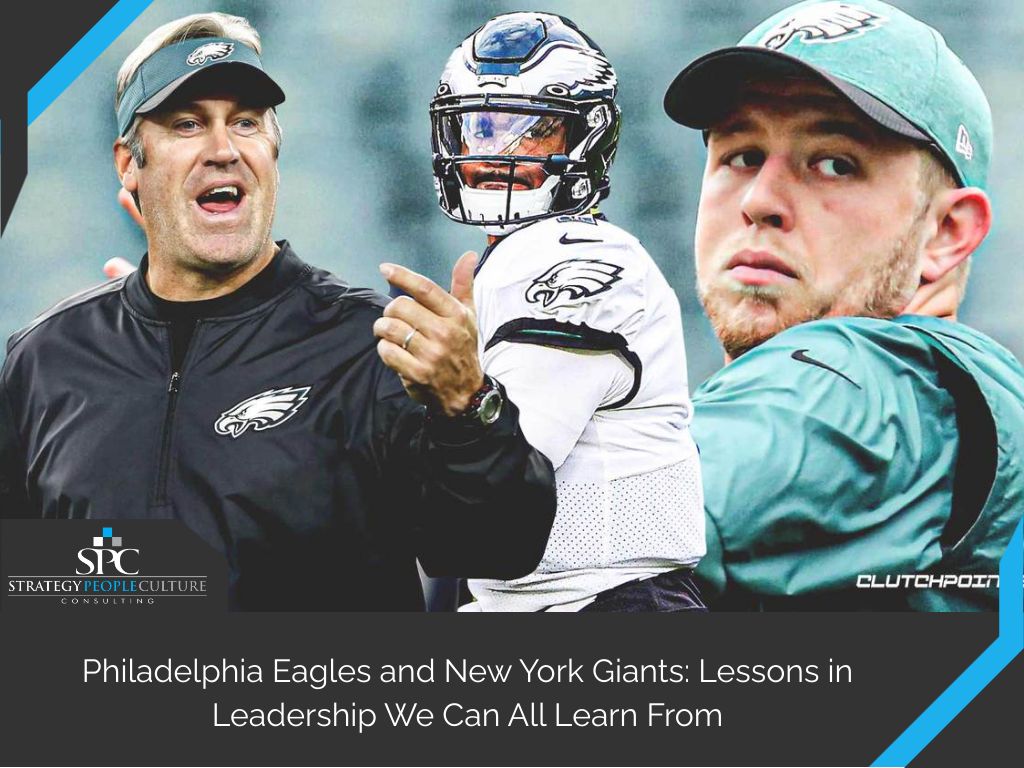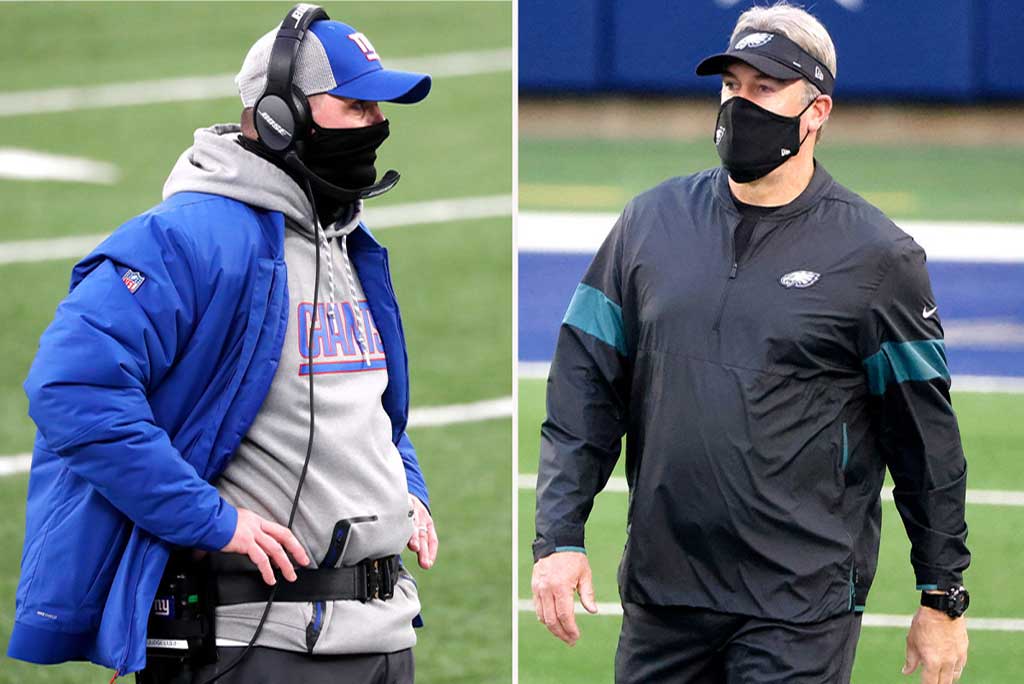Philadelphia Eagles and New York Giants: Lessons in Leadership We Can All Learn From

[Image source: Clutchpoints]
The Context
- Eagles v. The Washington Football Team in the last week of the regular season.
- If Washington wins, they make the playoffs; if they lose, they go home for the year.
- If Philly wins, they end the season on a high note, though they earn a less valuable draft pick position.
- If Philly wins, the Giants make the playoffs as a 6-win, 10-loss team.
- Eagles started Jalen Hurts with Nate Sudfeld as the backup QB.
- Most people on the planet believed Hurts was the better QB and gave the Eagles the best chance at winning.
- Doug Pederson (Head Coach of the Eagles) said BEFORE the game, there was a good chance they would play Nate Sudfeld.
- The game was sloppy but close (only 3 points separated the teams) when the Eagles made a quarterback change, deciding to play Sudfeld for the entire 4th quarter.
- The Eagles lost the game.
- Philadelphia players were upset with the mid-game change; Philly fans had mixed feelings; Giants fans were livid.
Leadership Lessons to Be Learned
As an executive coach, I have the privilege of working with a wide array of clients, gaining insight into the many difficult and sometimes unpopular, and even unpleasant decisions managers must make. As part of my executive coaching program, I often share with my clients a concept suggesting being in management only puts them in the position to be a leader, and the position itself does not make them an effective leaders. If business executives can focus on attributes making them great leaders, their respective teams would be less concerned about the actual decisions and results. One of the most important of these attributes comes from how the executive carries themself, engages with the team, and handles change as it occurs.
The Eagles coaching team decided to play Sudfeld for any combination of the reason that we do not truly know; maybe as a training exercise, to evaluate whether Sudfeld’s career should be with the team next year, perhaps to see if a 4-year backup player could get results in a live game situation, or possibly even to tank the game to ensure better draft resources. The Coach shared with his group of players, and various members of the press, playing Sudfeld was a possibility ahead of the game.
So why were many of the players Mr. Pederson was leading so upset? While I certainly cannot get into the individual minds of the players, it is reasonable to understand in professional sports, most players are competitive and play to win, regardless of the circumstances. In addition, football programs are founded on the premise that when you go onto a field as a group, you are, in a way going into battle with your teammates. So it is understandable players would be upset by the change made in the middle of the game.
What are the lessons we can glean from this? Part of this comes down to expectation setting. How clear was the coach to his group of players? Compare and contrast these two statement possibilities form a coach to his team:
Statement 1 – “There is a possibility we are going to play Sudfeld?”
Statement 2 – “No matter what, we plan on giving Sudfeld playing time in the game?”
Do those communications sound different and set different expectations? For example, if the game were a blowout and the quarterback change was made, the first statement would have worked out fine. However, in a closely contested game, the second statement would have been necessary for the team to meet their expectations better. While most of the external world does not really know what was said, it appears the communication was a lot closer to the first statement than the “no matter what” context.
Further, there was seemingly no understanding for the players around the “why.” This left the team to make their own assumptions behind the reasoning. Assumptions generally lead to less than ideal results. To be clear, management in any business may not get the results they seek by sharing every component of why in every situation. Even if part of the motivation was around securing better future resources for the program, there were other valid reasons to make the coaching decision.
My unsolicited career coaching comment to Mr. Pederson is, if your mind is largely made up, tell the people you are leading just that. Give them reasons to believe you. Something like, “Team, my plan going into the game is to give Suddy live game action. He has been with us for 4 years and deserves the opportunity.” Or the coach could have said, “Team, we are evaluating everyone for next year, play your hearts out and earn a spot on the team.
Part of this evaluation is we want to give Sudfeld a chance to earn a spot next year as well, and we plan on playing him in the game.” Regardless of whether there was agreement on the thought process, the coach made expectations clear and established why he was the team leader. Instead, ambiguity allowed for unnecessary emotion and lowered respect levels for the coach from some players on his team.
Now to Joe Judge, the coach for the Giants. Certainly, Mr. Judge acknowledged the team did not make the playoffs because they did not win enough. Though it was also clear based on media coverage, the Giants coach and many players blamed the Eagles for the Giants not making the playoffs. To reiterate, the Giants were a 6-win team and did not deserve to make the playoffs.
While the frustration of watching their only hope to make the playoffs limited by another team’s deliberate and questionable decision-making is understandable, their real focus should be around self, group, and team accountability for winning less than half of their games. Accountability is an entirely different topic and part of my executive coaching services. All my executive coaching clients learn about this, and it is a topic for a different article.
If you believe you could benefit from executive coaching services and leadership training, please call Strategy People Culture at (833) ROCK- SPC or email at info@strategypeopleculture.com.


